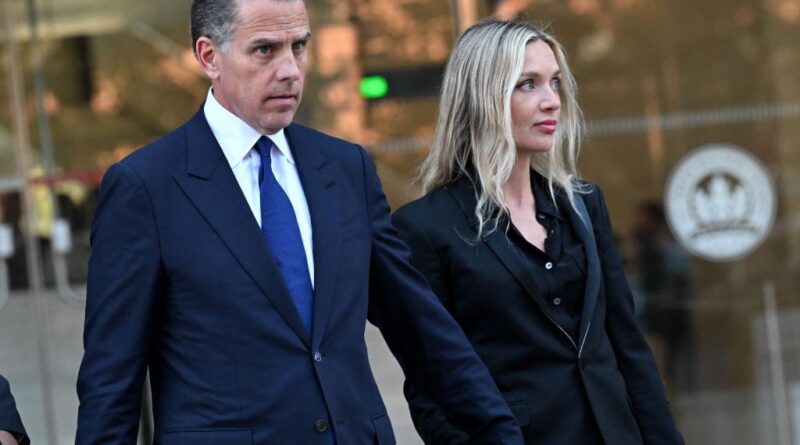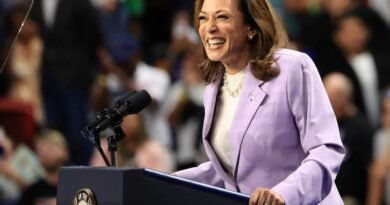Hunter Biden’s downward spiral culminates in risky pardon gamble from father

Hunter Biden just demonstrated the dangers of playing a risky game with oneself.
For quite some time, many have been amazed by Hunter’s reckless behavior, publicly declaring his willingness to push the limits.
The Justice Department had no interest in going down the path Hunter was heading towards as the cases in Delaware and California were straightforward with no high stakes for them.
The issue was never about convicting Hunter of these offenses, but rather the Justice Department’s determination to address them.
Special Counsel David Weiss allowed serious crimes to go unpunished, neglected to charge Hunter as an unregistered foreign agent, and attempted to arrange a lenient deal for Hunter to avoid jail time for minor offenses.
However, this arrangement fell apart in court when a judge rejected a provision granting Hunter immunity for any crime, leading to the prosecution of Hunter.
During the court proceedings, Hunter’s defense counsel demanded the prosecutors to withdraw the deal, resulting in Weiss being compelled to prosecute Hunter.
The Justice Department attempted to negotiate a plea deal with Hunter, but the defense declined the offer.
Subsequently, they sought a sympathetic jury in Delaware to portray Hunter as a victim of drug addiction and other unsubstantiated claims, which ended in a conviction on all charges.
As Hunter approached the trial for tax charges in California, the Justice Department and observers couldn’t comprehend his intimidating tactics. Hunter abruptly halted the trial.
By waiting until the last minute to plea, Hunter had limited leverage, and reportedly made his decision without informing the prosecutors.
Choosing to accept a less favorable plea deal last year would have resulted in recommended sentences for both the gun and tax charges, but now, Hunter will face sentencing with a prior criminal record.
In the end, Hunter had no bargaining power and pleaded guilty to all nine charges.
This decision may have been driven more by political considerations than legal ones, as a conviction was highly likely. Hunter’s chances of receiving a presidential commutation or pardon may improve post-sentencing.
The White House typically refrains from considering pardons before trial and sentencing, often waiting until after appeals have run their course.
The Justice Department is likely to seek a jail sentence, putting pressure on President Biden to consider a commutation or pardon.
If President Biden decides to pardon Hunter, it may not come as a surprise to many, especially given past speculations.
The plea deal also prevented the exposure of the extensive influence-peddling operations of the Biden family in open court.
The Justice Department’s decision not to charge Hunter as an unregistered foreign agent conflicts with previous and ongoing cases under the Foreign Agents Registration Act (FARA).
Despite the intrigue of Hunter’s defense strategy, it raises questions among legal professionals watching the spectacle unfold.
Jonathan Turley, the Shapiro Professor of Public Interest Law at George Washington University and author of “The Indispensable Right: Free Speech in an Age of Rage,” reflects on the legal and political implications of Hunter’s case.



